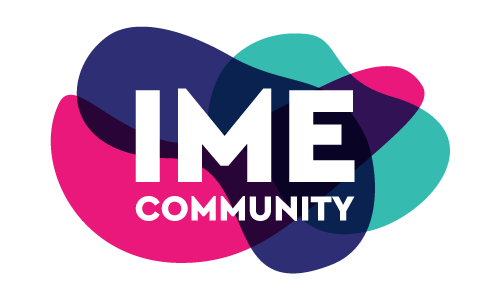If you are struggling with an eating disorder or believe you may be, Go to the National Eating Disorders Association for their Free online chat, call their Help Line at 1-800-931-2237 or contact their Crisis Line by Texting “NEDA” to 741741.
Dr. Karla talks with Dr. Jillian Rigert (DMD and MD) about what teens, parents, doctors, and teachers can do to help teens recognize, get treatment and heal from eating disorders in adolescence, starting with self-worth and self-compassion.
It’s Mental Health Awareness Month and this helpful information is needed now more than ever!
You get to live your magical and FUN life!
Dr. Rigert wrote an incredibly helpful blog for IME Community, titled, “Lessons from a recovering perfectionist”. I found Dr. Rigert’s blog and my interview with her to be so helpful and healing.
Teen Eating Disorders Video
We’re talking about teen eating disorders in this video, so just know that if you are not feeling it, go ahead and stop listening. Also, the video is super helpful and healing, but doesn’t take the place of going to your doctor and working with a therapist who specializes in eating disorder treatment. The earlier you are diagnosed and receive treatment, the better your outcome.
First, if you are experiencing disordered eating, know that you are not alone, that it’s never your fault, you are worthy of help and treatment and healing no matter where you are with your diagnosis.
Recognize, you are not broken and you can heal and live your beautiful life.
You don’t cause and you don’t control all the things in life. Eating disorders are a mental health diagnosis. They are a medical condition. You are not a diagnosis.
I simply love you and want you to know that you are deserving of a self-love superpower life.
Eating Disorders in Adolescence Are Common
Eating disorders are unfortunately common, cross gender lines, and do not have anything to do with weight. What do I mean by that? You cannot determine if someone has an eating disorder based on their weight and external appearance.
In our society and culture, we feel entitled to comment on bodies and sizeism is a thing and so is weight bullying, weight stigma and bias, and the false association between weight and health. It’s all 100% harmful.
Dr. Jillian and I talk a lot about social media in this helpful discussion. It’s very very helpful.
Welcome to National Eating Disorders Awareness Week. I mean, I guess it’s a good thing to have an awareness week? What do you think? I spent some time figuring out how to be helpful and not just share the typical talking points that are out there on eating disorders.
How IME Community is addressing eating disorders starts with sharing the story of Dr. Jillian Rigert and her experience with an eating disorder, but most importantly, how Dr. Jillian is intentionally healing through her journey of self-worth and self-compassion.
Sound familiar? It’s self-love superpower!
Eating disorders are “suffering”, a word Dr. Jillian used many times in this discussion. Parents, note that your teen’s weight has absolutely nothing to do with their internal mental state. If you believe your teen’s thinness means they should be happy, you’re wrong. If you believe your teen who exists in a larger body, needs to shrink their body and their emotional and mental health and well-being will be fixed, wrong. I’m not saying that improving health habits won’t improve well-being. Our focus on weight being equated to health and emotional health is just wrong.
Stop Believing the Pursuit of Thin Privilege Gets to Happiness
Silence is fuel for an eating disorder. Not talking about it, not knowing how to talk about it, staying stuck in diet culture, focusing too much on weight and not on mental health are all ways that parents and doctors contribute to the perpetuation of eating disorders and potentially create continued harm.
Just like many issues in healthcare, eating disorder screening and treatment is another thing we’ve not been that helpful in addressing. Dr. Jillian and I talk about how we can start by having discussions with physicians and get rid of the focus on BMI (Body Mass Index) and weight-based diagnostic criteria. When she talks about how harmful BMI at the doctor’s office was for her, I was overcome with emotion. Her story is very powerful.
Here’s a link to one of the many helpful Dr. Jillian Rigert articles on eating disorders, Eating Disorders Thrive in Secrecy, So Let’s Talk About It, published in KevinMD.com.
Next up, I will discuss the different types of eating disorders. Parents, please let me know what needs you have for coaching on this important health issue.
Reach out to me at drkarlaactivistmd@imecommunity.com. Teens, 12 to 18, and parents of teens, go to imecommunity.com and subscribe to the IME Community newsletter – you’ll be automatically added to the IME Community and get my coaching to create a Body Positive Community for Teens in a Body Negative World!
Self- love superpower,
Dr. Karla, ActivistMD

